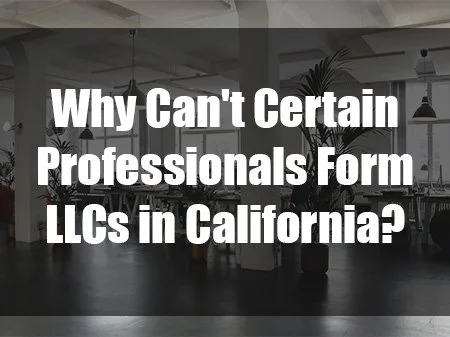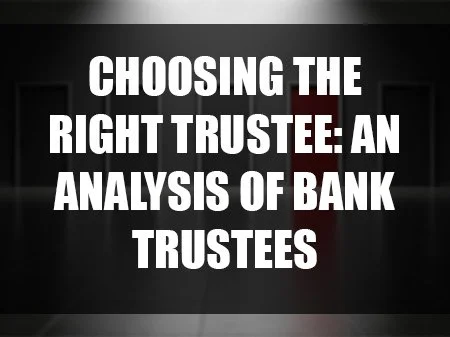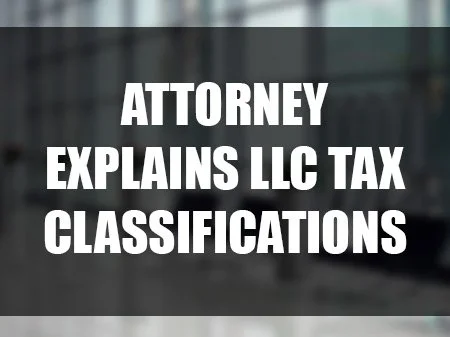Why Can't Certain Professionals Form LLCs in California?
Explore why certain professionals can't form LLCs in California and must instead establish a Professional Corporation or Registered Limited Liability Partnership. Get insights into the role of public policy in these regulations and understand the accountability measures in place for these professionals.
Navigating Business Structures: S-Corporations and LLCs in California
Unearth the crucial differences between S-Corporations and LLCs for sole business owners in California. This detailed guide examines management, ownership, taxation, funding, and legal protection aspects of each structure, offering invaluable insights to inform your business formation decision.
Choosing the Right Trustee: An Analysis of Bank Trustees
Explore the pros and cons of having a bank serve as the trustee of a trust, including professionalism, objectivity, financial stability, convenience, costs, inflexibility, impersonal service, and conflicts of interest.
LLC Owner Dies: What Happens Next in California?
Attorney Andrew Bethel explains what happens when the sole member of an LLC passes away in California. He covers the process of dissolution, default rules for distribution, transfer of ownership interests, and steps to wind up the LLC's affairs. If you're dealing with the death of an LLC owner, this video provides important information.
Estate Planning During a Recession: Tips and Strategies
Attorney Andrew Bethel shares tips for estate planning during a recession or times of high inflation. He advises reviewing your estate plan regularly, ensuring adequate insurance coverage, prioritizing debt payment, being mindful of taxes, seeking professional advice, and considering gifting assets to heirs. By taking these steps, you can protect your assets and ensure your wishes are honored after you pass away, even in times of economic uncertainty.
A Guide to Privacy in Estate Administration: Trusts vs. Probate
This article explores the privacy concerns in estate planning, comparing the public process of probate to the private administration of a revocable living trust. Learn about the parties who may access your trust documents and the role of a certification of trust in maintaining privacy. Discover the advantages of a revocable living trust in protecting your estate's confidentiality and ensuring a smoother estate administration process
Attorney Explains LLC Tax Classifications: Sole Proprietorship, Partnership, S Corp, & C Corp
Starting a business in California? Consider forming an LLC for personal liability protection and tax flexibility. LLCs have 4 tax classifications: Sole Proprietorship, Partnership, S Corporation, and C Corporation. Single-member LLCs default to Sole Proprietorship, multi-member LLCs to Partnership. LLCs can elect to be taxed as an S or C Corporation to avoid double taxation or gain corporate benefits.
Starting an LLC in California: Essential Steps for Creating Your Business, Naming, Filing Articles of Organization, & Obtaining an EIN
Learn how to start an LLC in California with attorney Andrew Bethel's essential steps. Choose a unique name and file the Articles of Organization with the California Secretary of State, online and after checking for name availability. Get an EIN from the IRS for tax purposes and file a Statement of Information within 90 days of filing the Articles to maintain good standing. This video covers important topics like LLCs, working with the Secretary of State, Operating Agreements, and state and local taxes.
Who to Leave Your Estate to When You Don't Have Heirs | Estate Planning Tips
If you don't have any heirs, you may be wondering what happens to your estate. Attorney Andrew Bethel discusses options available to you, including leaving your estate to extended family, friends, or charitable organizations. He also cautions against common pitfalls, such as bequests to caregivers, and provide key takeaways for creating a comprehensive estate plan.
Top 5 Tips to Pick Trustees, Executors and POAs
Five tips for choosing the right person to manage one's estate as executor or trustee, including considering the amount of work involved and the location of the person, choosing someone trustworthy, selecting someone who can step in right away if needed, considering a professional fiduciary or bank, and avoiding making decisions based on others' opinions. The responsibility of estate management is significant, and it's important to select someone who is capable and trustworthy.









